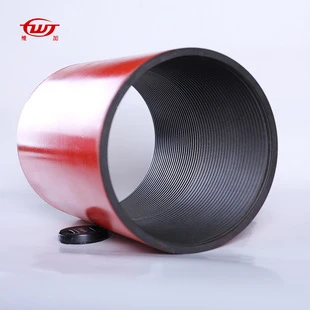- Afrikaans
- Albanian
- Amharic
- Arabic
- Armenian
- Azerbaijani
- Basque
- Belarusian
- Bengali
- Bosnian
- Bulgarian
- Catalan
- Cebuano
- Corsican
- Croatian
- Czech
- Danish
- Dutch
- English
- Esperanto
- Estonian
- Finnish
- French
- Frisian
- Galician
- Georgian
- German
- Greek
- Gujarati
- Haitian Creole
- hausa
- hawaiian
- Hebrew
- Hindi
- Miao
- Hungarian
- Icelandic
- igbo
- Indonesian
- irish
- Italian
- Japanese
- Javanese
- Kannada
- kazakh
- Khmer
- Rwandese
- Korean
- Kurdish
- Kyrgyz
- Lao
- Latin
- Latvian
- Lithuanian
- Luxembourgish
- Macedonian
- Malgashi
- Malay
- Malayalam
- Maltese
- Maori
- Marathi
- Mongolian
- Myanmar
- Nepali
- Norwegian
- Norwegian
- Occitan
- Pashto
- Persian
- Polish
- Portuguese
- Punjabi
- Romanian
- Russian
- Samoan
- Scottish Gaelic
- Serbian
- Sesotho
- Shona
- Sindhi
- Sinhala
- Slovak
- Slovenian
- Somali
- Spanish
- Sundanese
- Swahili
- Swedish
- Tagalog
- Tajik
- Tamil
- Tatar
- Telugu
- Thai
- Turkish
- Turkmen
- Ukrainian
- Urdu
- Uighur
- Uzbek
- Vietnamese
- Welsh
- Bantu
- Yiddish
- Yoruba
- Zulu
casing collar
Understanding the Importance of Casing Collars in Oil and Gas Operations
In the oil and gas industry, the efficiency and safety of drilling operations are paramount. Among the many components used during drilling, casing collars serve a critical role in ensuring the integrity of the wellbore and the success of the overall operation. This article delves into the purpose, types, and significance of casing collars in drilling projects.
What are Casing Collars?
Casing collars are specific fittings attached to the casing pipe in a drilling operation. They are strategically placed to provide structural support, enhance casing integrity, and facilitate various functions during the drilling process. Typically, casing collars are found at specific intervals along the casing string, serving as connection points for casing sections and other drilling components. Their design may vary, but they are generally constructed from the same materials as the casing, ensuring compatibility and strength.
Functions of Casing Collars
The primary function of casing collars is to provide a transition between different sections of the casing string. This transition is essential for various reasons
1. Structural Support Casing collars help maintain the structural integrity of the wellbore. By distributing loads evenly along the casing string, they prevent excessive stress on the casing, which can lead to deformation or failure.
2. Stopping Points for Cement During cementing operations, casing collars act as stopping points for the cement slurry. Their presence allows for better control of cement placement, which is crucial for sealing the annulus and preventing fluid migration.
3. Connection Points for Equipment Casing collars often serve as connection points for additional equipment such as packers, liners, or perforating guns. Their design facilitates easy attachment and detachment, enhancing operational flexibility.
4. Identification and Monitoring Casing collars are often marked or tagged to provide critical information about the casing string. This enables easy identification and tracking during monitoring and inspection processes.
Types of Casing Collars
casing collar

Casing collars come in various designs, each suited for specific applications. Some common types include
1. Regular Collars These are standard collars designed for general use. They provide basic structural and support functions.
2. Specialty Collars These are custom-designed collars for specific conditions, such as high-pressure environments or corrosive conditions. Specialty collars may incorporate advanced materials or technologies to enhance performance.
3. Liner Hangers These collars are used at the bottom of a liner to anchor it securely in place while allowing for the necessary expansion and contraction during thermal variations in the well.
4. Cementing Collars These collars are engineered specifically to optimize cement placement. They may feature unique designs that enhance the flow of cement and ensure a good bond between the casing and the formation.
Significance in Drilling Operations
The importance of casing collars in drilling operations cannot be overstated. They play a vital role in ensuring well integrity and mitigating risks associated with drilling activities. A well-designed casing collar can significantly reduce the likelihood of wellbore collapse, fluid leaks, and other failures that could compromise safety and increase costs.
Moreover, the use of advanced casing collar technology can enhance operational efficiency. For instance, collar designs that facilitate quicker cementing or easier equipment attachment can lead to less time spent on the wellsite, ultimately reducing operational costs and improving overall project timelines.
Conclusion
In summary, casing collars are a fundamental component of casing strings in the oil and gas industry. Their multifunctionality—ranging from providing structural support to serving as connection points—highlights their importance in maintaining well integrity and operational efficiency. As drilling technologies continue to advance, the design and function of casing collars will likely evolve, further enhancing their role in successful drilling operations. Understanding these components is essential for professionals in the field to ensure that they can effectively plan, execute, and monitor drilling projects.
-
Tubing Pup Joints: Essential Components for Oil and Gas OperationsNewsJul.10,2025
-
Pup Joints: Essential Components for Reliable Drilling OperationsNewsJul.10,2025
-
Pipe Couplings: Connecting Your World EfficientlyNewsJul.10,2025
-
Mastering Oilfield Operations with Quality Tubing and CasingNewsJul.10,2025
-
High-Quality Casing Couplings for Every NeedNewsJul.10,2025
-
Boost Your Drilling Efficiency with Premium Crossover Tools & Seating NipplesNewsJul.10,2025







